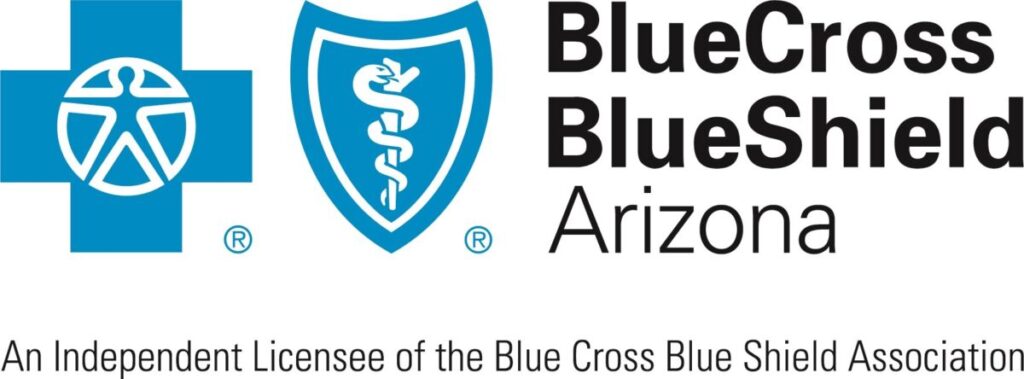By Dr. Cara Christ, Chief Medical Officer, Blue Cross Blue Shield of Arizona
I have held titles throughout my life and career that reinforce my commitment to healthcare and caring. I’m the Chief Medical Officer at Blue Cross Blue Shield of Arizona, former Director of the Arizona Department of Health Services, and above all – I am a mom.
So when I read statistics like this, from the Centers for Disease Control and Prevention’s latest Youth Behavioral Risk Survey, my heart sinks:
In 2021, 42% of high school students felt so sad or hopeless almost every day for at least two weeks in a row that they stopped doing their usual activities.
Kids and adolescents usually radiate more optimism, liveliness, and energy than any other age group. Instead, research shows us that nearly half of all teenagers in the U.S. are experiencing a sense of hopelessness.
It is a mental struggle I hope my kids and loved ones never face, and no Arizonan ever goes through. However, this is not a problem we can simply hope will get better or resolve itself. We need a strategic plan and measured efforts.
Making a measured difference in Arizona by 2025
Our team at Blue Cross Blue Shield of Arizona is stepping up to the plate in our state with an action plan. We set an ambitious goal of engaging 525,000 Arizonans in improving behavioral health by 2025.
We often discuss mental health by itself, but behavioral health fully encompasses the issues we need to tackle. Behavioral health affects how we think, feel, act, handle stress, relate to others, and make healthy choices. Behavioral health includes mental health and substance use issues, which can both impact your physical health.
It is not always the case, but there can be a cause-and-effect connection between mental health and substance use disorders. For example, sometimes people who are experiencing depression, anxiety, or suicidal thoughts “self-medicate” with unprescribed substances in an attempt to find relief. The coexistence of both a mental illness and a substance use disorder is referred to as co-occurring disorder.
Recent statistics demonstrate the need to address mental health and substance use disorders at the same time:
- 1,030,000 adults in Arizona have a mental health condition.
- 87,000 Arizonans ages 12–17 have depression.
- Suicide is the 10th leading cause of death in Arizona.
- 5 Arizonans die a day from opioid overdoses.
- 5% of Arizona adults report drinking excessively.
Although alarming, these figures do not fully represent the scope of the issues which have been exacerbated by the pandemic. Even as the COVID-19 Public Health Emergency comes to an end, behavioral health issues persist.
The BCBSAZ Behavioral Health Action Plan comes at a pivotal time. It is all about raising awareness and getting others involved – the first steps to creating actionable change.
Engaging 525,000 Arizonans in improving behavioral health
It is important for us to talk with Arizonans who are providing and receiving healthcare to keep a pulse on the biggest behavioral health gaps and needs. From conversations like these, we formed a plan to reach 525,000 Arizonans through different channels: online, training, partnerships, and more.
For example, Blue Cross Blue Shield of Arizona has social media series of content that gives tips on taking care of your mental health and sparking joy. We are launching a website dedicated to behavioral health full of insights and resources. We are working on enhancing availability of behavioral health services and treatment in Arizona. We will continue to fund and partner with Arizona-based nonprofit organizations that educate and treat mental health and substance use, and fight stigmas through the BCBSAZ Foundation for Community & Health Advancement.
On the business front, our team is creating a guide for leaders to support their employees’ mental health. We’re also continuing to provide Mental Health First Aid training throughout the state. This specialized training teaches you what to do or say to someone who may be experiencing a mental health or substance use crisis until professionals step in. Think of it as First Aid/CPR – only for behavioral health rather than physical health.
Changing the numbers and the narrative
More than anything, we want to see a decrease in deaths by despair, overdoses, anxiety, depression, and other behavioral health conditions. Through our work, we are also aiming for an increase in certain numbers – like the number of people who know the 988 Suicide & Crisis Lifeline by heart and the number of Arizonans trained in Mental Health First Aid.
Behavioral health is something that affects every one of us. We all feel, react, manage stress, and make choices daily. We all have good days and bad days, and that is perfectly normal. However, it is something we need to work on, just like our physical health. The Behavioral Health Action Plan is meant to be a launching pad for conversation, connection, and change. We are excited for the opportunity to turn reported ‘hopelessness’ for some, into increased hopefulness for all Arizonans.
Dr. Christ is Chief Medical Officer of Blue Cross Blue Shield of Arizona.
# # #


